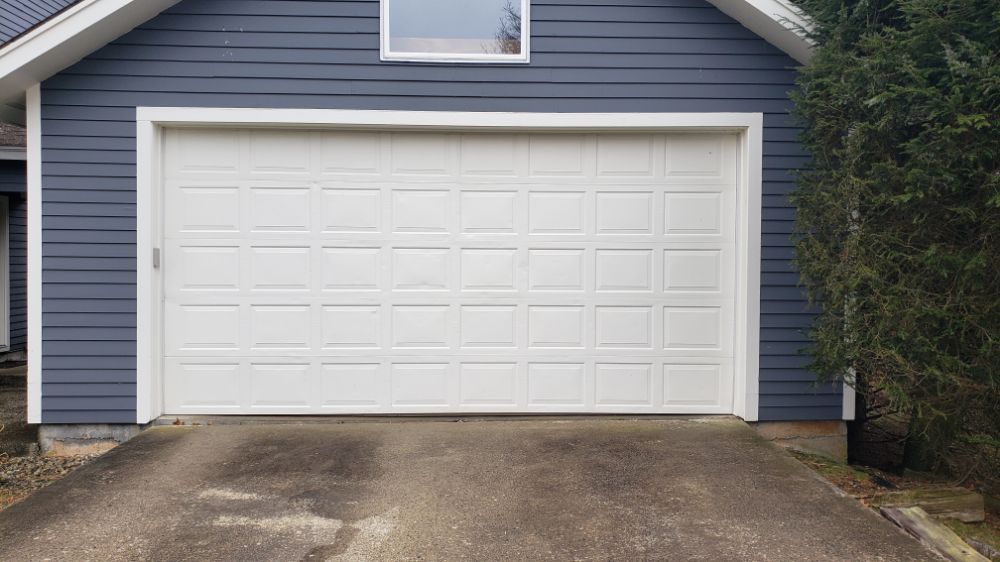
DIY and know when to call a professional
More from Ronen's Rescue
Garage doors are essential to your home, providing security and convenience. Regular maintenance can extend the life of your garage door and prevent costly repairs. While homeowners can perform many tasks, some require professional expertise.
In this week's session of Ronen's Rescue, I wish to emphasize the importance of undertaking some DIY preventative measures, especially now as the New England regions begin to take advantage of outdoor activity, in and out more often, seasonal sports gear, lawn care supplies, and tools tune-ups, pretty much involves storage in your garage. If the winter has caused any long-term unseen effect on your garage door and opener itself, now is the time to fix and repair, and I can share some of my own safe suggestions for you.
Why am I willing to share advice? As a specialized garage door repair technician and with other garage door mechanics, I have seen the repercussions of failed attempts at DIY repair jobs range from minor automobile to major personal injury and property damage. To help save you the risks, this guide will help you understand what you can do yourself and when it's time to call a technician for a professional assessment, quote, and repair appointment.
DIY garage door maintenance that you can do.
- Visual Inspection: Inspect your garage door for signs of wear and tear. Look for rust, chipped paint, or dents. Check the cables, springs, rollers, and pulleys for signs of damage.
- Lubrication: Keep your garage door parts well-lubricated to ensure smooth operation. Use a high-quality lubricant on the rollers, hinges, and tracks at least twice a year.
- Cleaning: Clean the tracks with a damp cloth to remove any dirt or debris. Also, clean the door itself to prevent rust and corrosion.
- Weatherstripping: Check the weatherstripping at the bottom of your door. If it's cracked or brittle, replace it to keep your garage dry and insulated.
- Test the Balance: Disconnect the opener by pulling the release handle and manually move the garage door about halfway up. If it doesn't stay put, the counterweight system (springs) is improperly balanced. Please beware to either have someone help you with this or place a couple of saw horses or something to stop the door from falling if you feel less than capable of this DIY
- 6: Garage doors have safety features like auto-reverse and photo-eye sensors. Test these regularly to ensure they're working correctly.
When to call a professional
As discussed, while DIY maintenance can save you money, some tasks should be left to professionals due to safety concerns or the need for specialized tools.
- Spring Replacement: Garage door springs are under high tension and can cause serious injury if properly handled. If your springs are broken or worn out, call us as soon as possible.
- Cable Replacement: Like springs, the cables are under high tension and can cause injury if mishandled. If your cables are frayed or broken, it's time to call a professional.
- Roller Replacement: If your rollers are worn out or broken, they need to be replaced. This task requires special tools and expertise.
- Track Adjustment: The tracks may need adjustment if your garage door isn't opening or closing correctly. This task requires precision and should be left to a professional.
- Opener Installation: Installing a new garage door opener can be complex and requires electrical work. It's best to hire my professional services for this task.
Regular maintenance can keep your garage door functioning smoothly for years. While many tasks can be performed by homeowners, remember that safety is paramount. Don't hesitate to call us, your Massachusetts garage door expert. Serving Boston and surrounding areas for years, we can tackle tasks that require specialized tools, parts, or labor and pose a risk of injury.
"Summer-Proofing": Isn't it better to……
A lot of my clients ask, "Should you keep your garage door open in warmer temperatures to save the constant wear and tear on it?" The rationale behind this is the need for an easy way to move summer furniture and tools in and out, letting carbon exhaust and fumes out, painting touch-ups, etc.
While it might seem like a good idea to keep your garage door open during warmer temperatures to reduce wear and tear, there are several factors to consider:
- Security: An open garage door can invite thieves. It's important to keep your home and belongings secure.
- Pests: An open garage door can also invite pests like insects, rodents, or stray animals into your garage.
- Energy Efficiency: If your garage is attached to your house and you use air conditioning, an open garage door can let in hot air, making your AC work harder and increasing your energy costs.
- Privacy: An open garage door can expose your belongings and activities to passersby.
- Safety: If you're working with tools or chemicals, keeping the area secure is important so children or pets can't wander in.
- Avoid the temptation to use your garage as an outdoor BBQ shed in inclement weather. Leave the grilling for the great outdoors.
For these reasons, it's generally not recommended to keep your garage door open for extended periods. Instead, consider opening it when necessary for ventilation or moving items and closing it when you're done.









